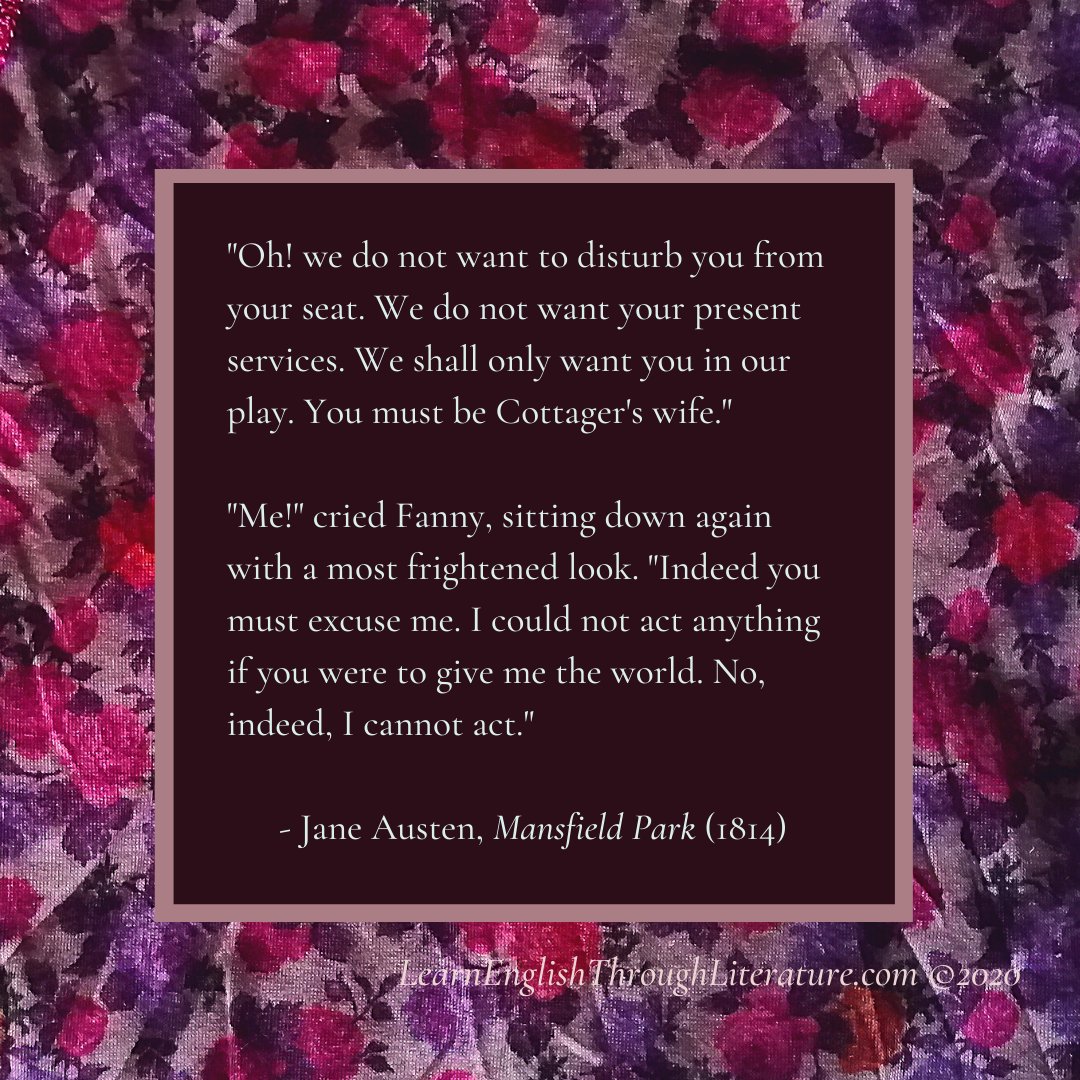As mentioned in the first part of this Mini-Lesson (see previous post), ‘must’ is a modal verb expression commonly observed in written English. We looked earlier at usages of ‘must’ in sentences where the action is taking place in the present or future tense – ‘must’ followed by an infinitive such as ‘must yield’ or ‘must be’.
✏️ Here are examples of the present modal perfect form being used to speak about something that is past: note how they all contain ‘must’ + ‘have’ + a past participle (e.g. walked, mistaken, etc).
All these examples draw a conclusion about what is past, often offering a reason for that particular outcome. As you read through these examples from Mansfield Park (1814), try to understand the ‘must have [past participle]’ structure as an emphatic statement. In examples 2 and 5 below, you can also find a clearly expressed reason behind the modal conclusion (to find the reason behind the other examples, you would need to read the sentence within its wider context, which I cannot quote here in full).
📘 # 1 “Ah! you carry it off very well, but I cannot be quite so far imposed on. You must have had Miss Anderson in your eye, in describing an altered young lady. …’ (Tom Bertram)
📘 # 2 “I am really not tired, which I almost wonder at; for we must have walked at least a mile in this wood …” (Mary Crawford)
📘 # 3 ‘Fanny supposed she must have been mistaken, and meant to think differently in future …’ (narrator)
📘 # 4 ‘Mr. Crawford would certainly never address her so again: he must have seen how unwelcome it was to her …’ (Fanny Price’s thoughts)
📘 # 5 “For I had, Fanny, as I think my behaviour must have shown, formed a very favourable opinion of you from the period of my return to England.” (Sir Bertram)
Modal ‘must have’ vs ‘should have’:
✏️ If the construction ‘must have + past participle‘ expresses a conclusion about the past, then ‘should have + past participle‘ expresses regret for or criticises a past action, as can be seen in these examples:
📘 # 1 “What a pity,” he added, after an instant’s reflection, “that she should have been in such hands!” (Edmund Bertram)
📘 # 2 “I was sorry for him that he should have so mistaken his powers, for he was no more equal to the Baron—” (John Yates)
📘 # 3 “You ought to be in parliament, or you should have gone into the army ten years ago.” (Mary Crawford)
📘 # 4 “I wish he had not been obliged to tell you what he was trying for. I wish he had known you as well as I do, Fanny. Between us, I think we should have won you.” (Edmund Bertram)
I hope very much that this overview has helped to establish the main purposes of modal phrases that include ‘must’, ‘must have’, or ‘should have. If for any reason something is not clear for you, feel free to include your specific query in the messaging form at the bottom of my home page – I will be happy to help.




